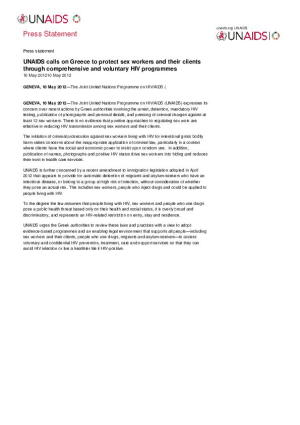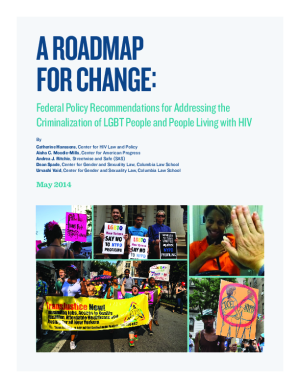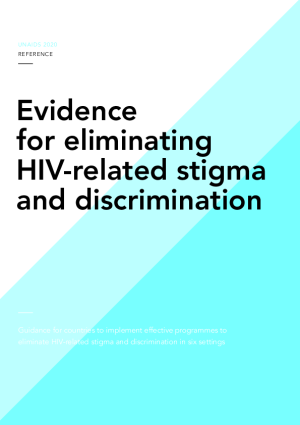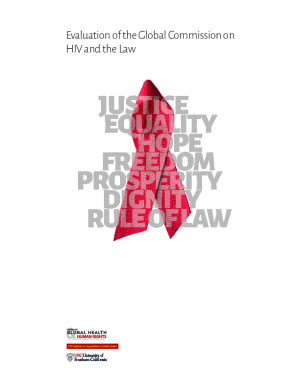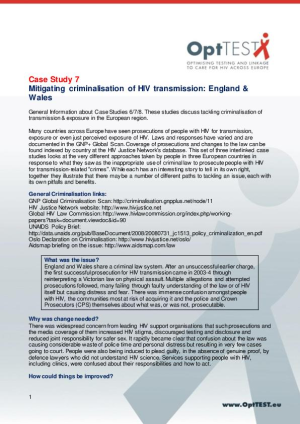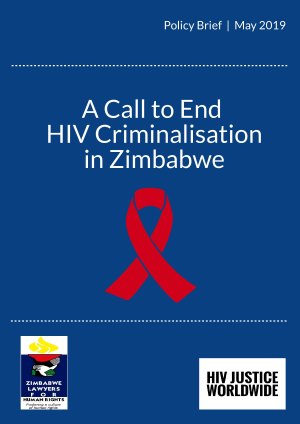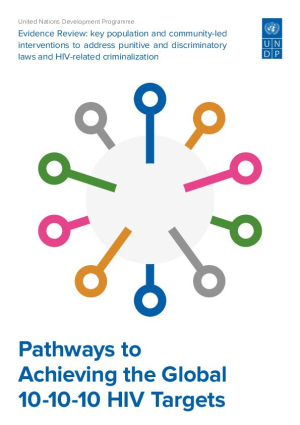Identifies key problems with criminal law approaches to HIV prevention, and outlines principles to guide laws or prosecutions targeting people with HIV or other STIs. Recommends federal review of HIV-specific laws, convictions and related penalties; modernization of laws and practices to reflect current science and knowledge about HIV; and the application of standards of proof and process normally applied to individuals facing criminal charges.
Initiating policy & law reform
Getting the issues into national strategies
Sometimes HIV criminalisation reform requires changes to public policy and programs instead of, or additional to, law reform. The following resources include targeted advocacy at program or policy level.
UNAIDS calls on Greece to protect sex workers and their clients through comprehensive and voluntary HIV programmes
UNAIDS expresses its concerns about the Greek Government’s treatment of alleged sex workers and also asylum seekers who may have an infectious disease.
- Alternative links
- French / Français, Russian / РУССКИЙ , Spanish / Español,
A Roadmap for Change: Federal Policy Recommendations for Addressing the Criminalization of LGBT People and People Living with HIV
Makes recommendations to government agencies to improve the federal government’s strategy on HIV/AIDS. Also includes testimonials & policy recommendations to address cycles of criminalization of and discrimination against LGBT people. Includes specific section on criminalisation of HIV (pages 48 – 53).
How to change the law
Ground-breaking research from the Human Dignity Trust offering a step-by-step analysis of how the reform of discriminatory sexual offence laws has been achieved and identifying how it can be replicated. Countains a series of reports investigating in detail how countries in four regions of the world have recently reformed outdated and discriminatory sexual offences laws.
Evidence for eliminating HIV-related stigma and discrimination – Guidance for countries to implement effective programmes to eliminate HIV-related stigma and discrimination in six settings
This report reviews the latest evidence on what works to reduce HIV-related stigma and discrimination through key programmes to reduce stigma and discrimination and increase access to justice in the six settings of focus for the Global Partnership, including Justice. It includes guidance and recommendations for national governments and key stakeholders to implement programmes to empower populations “being left behind”; remove laws criminalising drug use or possession for personal use, all aspects of sex work, sexual orientation, gender identity, and HIV exposure, non-disclosure and transmission and to routinely review existing laws, regulations and policies relating to HIV.
- Alternative links
- Portuguese, French, Spanish, Russian
Evaluation of the Global Commission on HIV and the Law
Findings from an external evaluation of the impacts and legacy of the Global Commission on HIV and the Law. It explores the fulfilment of the Commission’s objectives, taking into account the perspectives and experiences of representatives from government, including law and policy makers, civil society including those most marginalised and affected by HIV, as well as United Nations agencies and other development partners.
Mitigating criminalisation of HIV transmission: England & Wales
Many countries across Europe have seen prosecutions of people with HIV for transmission, exposure or even just perceived exposure of HIV. Laws and responses have varied. This case study looks at approaches taken by people in England & Wales in response to what they saw as the inappropriate use of criminal law to prosecute people with HIV for transmission-related “crimes”.
A Call to End HIV Criminalisation in Zimbabwe – Policy Brief
The Brief explains the concept of “HIV criminalisation” and the HIV-related criminal law in Zimbabwe. It describes why it is necessary for the law to be reformed, including why the law violates human rights and is outdated in the light of compelling scientific developments.
End unjust HIV criminalisation – Community Statement
The Community Consensus Statement outlines a shared critique of why Canada’s approach to HIV criminalization is wrong and calls for some specific actions that federal, provincial and territorial governments should take to end unjust criminal prosecutions against people living with HIV. It was developed by the CCHRC to be a common set of demands by those organizations who sign on to it.
The ABC’s of HIV law reform in Latin America and the Caribbean
We interviewed key players in the Latin American and the Caribbean region to understand what led to law reform in three countries between 2019 and 2023: Argentina (2022), Belize (2023) and Colombia (2019). While the process in each country was, and always is, a product of factors unique to the local context and cannot be replicated exactly, lessons can be drawn from these case studies that are likely to be relevant to other countries.
Pathways to Achieving the Global 10-10-10 HIV Targets
This review focuses on initiatives led by key populations and people living with HIV documented in peer reviewed and grey literature published between January 2018 and December 2022. To assist in meeting the 10-10-10 targets, the review highlights 14 specific tactics, strategies and approaches that have been used to reform or mitigate the impact of punitive and discriminatory laws and policies and HIV-related criminalisation on access to services for people living with HIV and other key populations. This review serves as a tool for all stakeholders, including civil society, communities of people living with and affected by HIV and other key populations, development partners, government officials and donors to identify relevant and linked avenues to pursue in legal and policy reform for achieving the 10-10-10 targets of the 2021 Political Declaration on HIV and AIDS.


